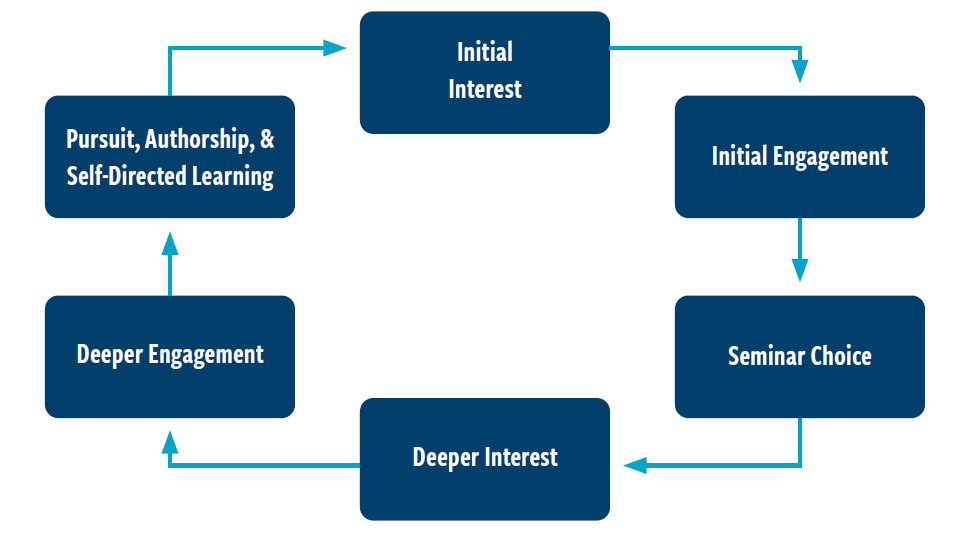
By Matt Delaney, Director of Academic Design and Integration

Initial interest in a subject area leads to engagement, and in the right environment, engagement leads to a series of choices about where to focus attention. The result is deeper interest and engagement, a positive feedback loop with positive results for students and teachers.
In the EPS Independent Curriculum, choosing to engage a particular independent study or a Seminar generally leads to more engagement and a broader feeling of agency.
As an educator, when I hear the term student engagement, the first things I think about are movement and momentum; and what kind of cycles or loops need to be created to sustain that engagement.
As part of homeostasis, humans sweat to cool themselves down, a negative feedback loop with a positive result. In the context of amplification, feedback occurs when the sound from a microphone is projected through an amplifier and the amplifier projects back into the microphone, continually increasing volume; a positive feedback loop with a negative result for human ears. Student engagement is part of a virtuous cycle, or a positive feedback loop, with a positive outcome for both individual students and our broader learning community.
One of the explicit goals of Eastside Prep’s Independent Curriculum is to use the medium of choice to increase student engagement and agency, and in turn, the degree to which students pursue, author, and self-direct their learning.
During their tenth- through twelfth-grade years, EPS Upper Schoolers have the opportunity to opt into up to nine different Seminars over the course of nine trimesters. Seminars are faculty-designed and student-fueled, and often a first step toward an independent study, an experience which is student-designed and student-fueled.
While school and state requirements frame student experience in the core curriculum at EPS, seminars and independent studies provide more freedom and flexibility in what can be offered. The US Seminar Program, now in its eighth year, is a space where teachers design and offer experiences in the context of an area of expertise or deep interest. Seminars provide opportunities for students to think about, understand, and figure out how to navigate the modern world.
Seminars are six-week experiences for groups of three to six students and are facilitated by one or two faculty members.
In each seminar, students engage a big, complex question. Seminars ask students to: 1) explore academic discipline topics in depth, 2) make connections across discipline boundaries, and 3) apply learning to relevant, contemporary contexts.
Seminars like Worldviews, Truths, and Consequences give students time and space to think about what it means to have a worldview. Focused on the book 21 Lessons for the 21st Century by Israeli historian Yuval Harari, students in this seminar explore the modern issues of climate change and ecological impact, technology and the rise of artificial intelligence, and the proliferation and management of nuclear weapons, a topic so normalized it is rarely talked about in the modern landscape. In addition to a Seminar like Worldviews, students have the option from over thirty Seminars offered at EPS each year.
At the close of this school year, two students took a moment to reflect on their seminar experiences and why they felt engaged.

